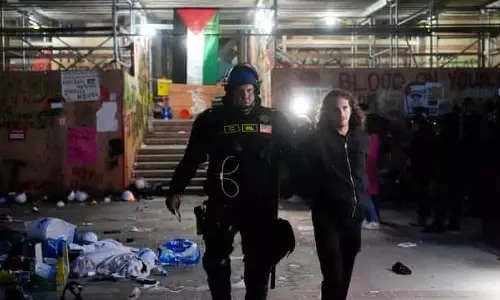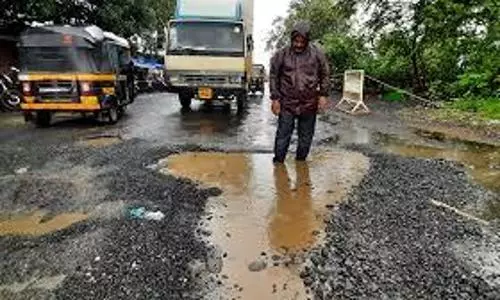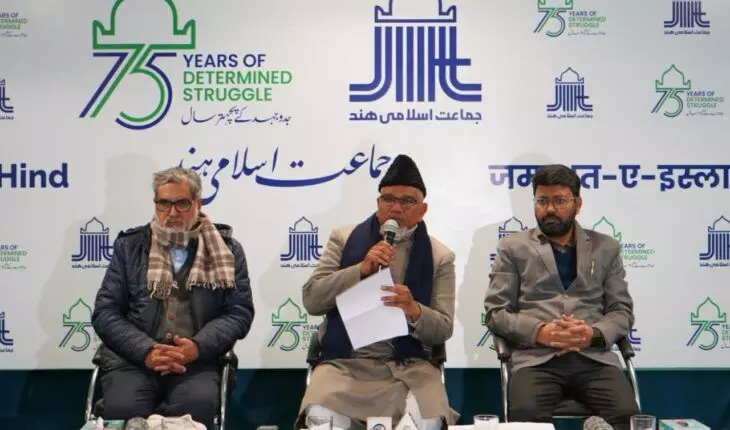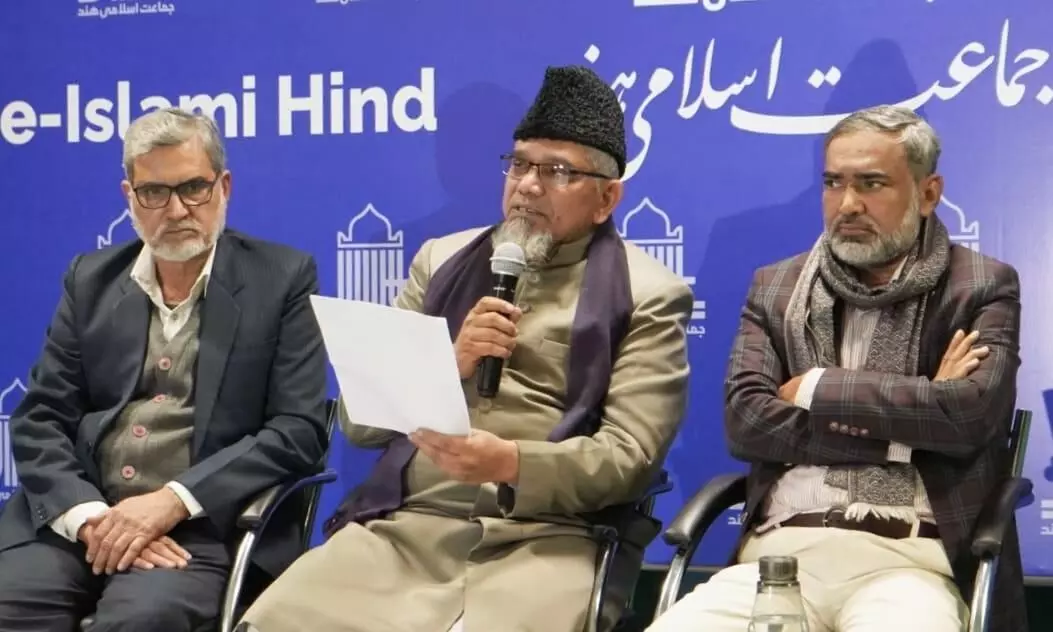
When Indian Jamaat-e-Islami completes 75 years
text_fieldsThe Indian Jamaat-e-Islami, formed in independent India on April 16-18, 1948, is completing 75 years with a history of overcoming crises and obstacles. The motto adopted by the Jamaat is peaceful action for a clear goal backed by a firm conviction about its ideal. What makes the Jamaat stand out from traditional religious organisations is its representation of Islam as a comprehensive vision and ideology that embraces all aspects of life - something beyond the familiar concept of religion. Thus it was distinctly and completely opposed to ideologies like capitalism, communism, the anti-religious version of secularism and philosophies which confine God and religion to private life, leaving material affairs completely to man-made ideologies. No wonder that the religious organizations and scholars, revolving around their respective beliefs regarding Islam as a mere religion of rites and rituals, were unable to reconcile themselves to modern Islamic movements of this strain. Even the modern schools of thought, which work under the guise of extreme nationalism on a platform of culture and infallibility of the native land - which claim a heritage of thousands of years - could not tolerate the idealistic movement that proclaimed the unity of humanity. Thus the trajectory of Indian Jamaat-e-Islami has been a path of hard work spanning seven and a half decades against all odds and professing that they stand for peace and stability in the country and the world at large.
In retrospect, what is more important than assessing how far the organization has progressed towards achieving its goals, is to weigh the relevance of such a movement in the present conditions, and the possible direction of its future journey. The atmosphere in the country is so complex and confusing. The Supreme Court has repeatedly pointed out that the Constitution of India allows freedom to function for any ideology, be it Capitalism, Socialism, Maoism, Hinduism or Islam, as long as their deeds are peaceful and lawful. The current environment, however, is quite different. The great nation of India is being strangled by forces that reject everything but 'arshabharata sanskriti', and for whom denial of democracy is not an issue. Surely, in the adverse background, with the administration holding the media hostage, with almost complete control of the parliament and the executive, and employing all tactics to make the judiciary accountable, Jamaat-e-Islami is apparently seized of the fact that a picture can be drawn only if there is a wall. The main challenge is the survival of the largest religious minority under a ruling class that does not approve of equal rights or even independent existence of religious minorities in its agenda. When fascism takes hold through laws like the Citizenship Amendment Act, legislative efforts for a uniform civil code, and demolition of mosques, the cooperation of community organizations and solidarity with secular forces, and above all the fight against tens and crores of poor people, crave for prime consideration. In 1964, the Indian Jamaat-e-Islami was instrumental in establishing the All India Muslim Majlis-e-Mushavara under the leadership of Syed Mahmood to work for the constitutional rights of the Muslim community, in co-operation with all humanitarian segments of the country. Then again when the introduction of a Uniform Civil Code posed a threat to the Muslim family system, it was the Jamaat that took the lead to form the All India Muslim Personal Law Board. When the Babri Masjid demolition shattered communal relations and put inter-communal relations in a crisis across the country, Jamaat-e-Islami formed the Forum for Democracy and Communal Amity (FDCA) at the national level with Justice VM Tarkunde as president and an executive committee of eminent personalities like Justice VR Krishna Iyer, Kuldeep Nayar, Muchkund Dubey and Shafie Munis. The organization pioneered the mission of establishing dialogue centres across the country to build interfaith friendship and communication.
But these initiatives not only went without adequate continuity, but challenges of the kind mentioned above multiplied too. Its true well-wishers are looking forward to see how far the Indian Jama'at, about which the Supreme Court has said even in the most recent MediaOne case that there is no evidence of its having engaged in any activities that are anti-national, unfriendly to the community or detrimental to peace - will move forward in the unprecedented crisis faced by the country in a well-deliberated manner, boldly and effectively.

























